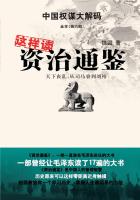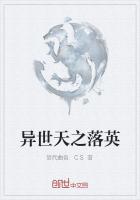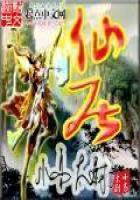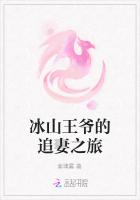Mr. Yeats reads into elfland all the righteous insurrection of his own race. But the lawlessness of Ireland is a Christian lawlessness, founded on reason and justice. The Fenian is rebelling against something he understands only too well; but the true citizen of fairyland is obeying something that he does not understand at all.
In the fairy tale an incomprehensible happiness rests upon an incomprehensible condition. A box is opened, and all evils fly out.
A word is forgotten, and cities perish. A lamp is lit, and love flies away. A flower is plucked, and human lives are forfeited.
An apple is eaten, and the hope of God is gone.
This is the tone of fairy tales, and it is certainly not lawlessness or even liberty, though men under a mean modern tyranny may think it liberty by comparison. People out of Portland Gaol might think Fleet Street free; but closer study will prove that both fairies and journalists are the slaves of duty.
Fairy godmothers seem at least as strict as other godmothers.
Cinderella received a coach out of Wonderland and a coachman out of nowhere, but she received a command--which might have come out of Brixton--that she should be back by twelve. Also, she had a glass slipper; and it cannot be a coincidence that glass is so common a substance in folk-lore. This princess lives in a glass castle, that princess on a glass hill; this one sees all things in a mirror; they may all live in glass houses if they will not throw stones.
For this thin glitter of glass everywhere is the expression of the fact that the happiness is bright but brittle, like the substance most easily smashed by a housemaid or a cat. And this fairy-tale sentiment also sank into me and became my sentiment towards the whole world.
I felt and feel that life itself is as bright as the diamond, but as brittle as the window-pane; and when the heavens were compared to the terrible crystal I can remember a shudder.
I was afraid that God would drop the cosmos with a crash.
Remember, however, that to be breakable is not the same as to be perishable. Strike a glass, and it will not endure an instant; simply do not strike it, and it will endure a thousand years.
Such, it seemed, was the joy of man, either in elfland or on earth; the happiness depended on NOT DOING SOMETHING which you could at any moment do and which, very often, it was not obvious why you should not do. Now, the point here is that to ME this did not seem unjust.
If the miller's third son said to the fairy, "Explain why I must not stand on my head in the fairy palace," the other might fairly reply, "Well, if it comes to that, explain the fairy palace."
If Cinderella says, "How is it that I must leave the ball at twelve?" her godmother might answer, "How is it that you are going there till twelve?" If I leave a man in my will ten talking elephants and a hundred winged horses, he cannot complain if the conditions partake of the slight eccentricity of the gift. He must not look a winged horse in the mouth. And it seemed to me that existence was itself so very eccentric a legacy that I could not complain of not understanding the limitations of the vision when I did not understand the vision they limited. The frame was no stranger than the picture. The veto might well be as wild as the vision; it might be as startling as the sun, as elusive as the waters, as fantastic and terrible as the towering trees.
For this reason (we may call it the fairy godmother philosophy)
I never could join the young men of my time in feeling what they called the general sentiment of REVOLT. I should have resisted, let us hope, any rules that were evil, and with these and their definition I shall deal in another chapter. But I did not feel disposed to resist any rule merely because it was mysterious.
Estates are sometimes held by foolish forms, the breaking of a stick or the payment of a peppercorn: I was willing to hold the huge estate of earth and heaven by any such feudal fantasy. It could not well be wilder than the fact that I was allowed to hold it at all.
At this stage I give only one ethical instance to show my meaning.
I could never mix in the common murmur of that rising generation against monogamy, because no restriction on sex seemed so odd and unexpected as sex itself. To be allowed, like Endymion, to make love to the moon and then to complain that Jupiter kept his own moons in a harem seemed to me (bred on fairy tales like Endymion's) a vulgar anti-climax. Keeping to one woman is a small price for so much as seeing one woman. To complain that I could only be married once was like complaining that I had only been born once.
It was incommensurate with the terrible excitement of which one was talking. It showed, not an exaggerated sensibility to sex, but a curious insensibility to it. A man is a fool who complains that he cannot enter Eden by five gates at once. Polygamy is a lack of the realization of sex; it is like a man plucking five pears in mere absence of mind. The aesthetes touched the last insane limits of language in their eulogy on lovely things. The thistledown made them weep; a burnished beetle brought them to their knees.
Yet their emotion never impressed me for an instant, for this reason, that it never occurred to them to pay for their pleasure in any sort of symbolic sacrifice. Men (I felt) might fast forty days for the sake of hearing a blackbird sing. Men might go through fire to find a cowslip. Yet these lovers of beauty could not even keep sober for the blackbird. They would not go through common Christian marriage by way of recompense to the cowslip. Surely one might pay for extraordinary joy in ordinary morals. Oscar Wilde said that sunsets were not valued because we could not pay for sunsets.
But Oscar Wilde was wrong; we can pay for sunsets. We can pay for them by not being Oscar Wilde.
Well, I left the fairy tales lying on the floor of the nursery, and I have not found any books so sensible since. I left the nurse guardian of tradition and democracy, and I have not found any modern type so sanely radical or so sanely conservative.















